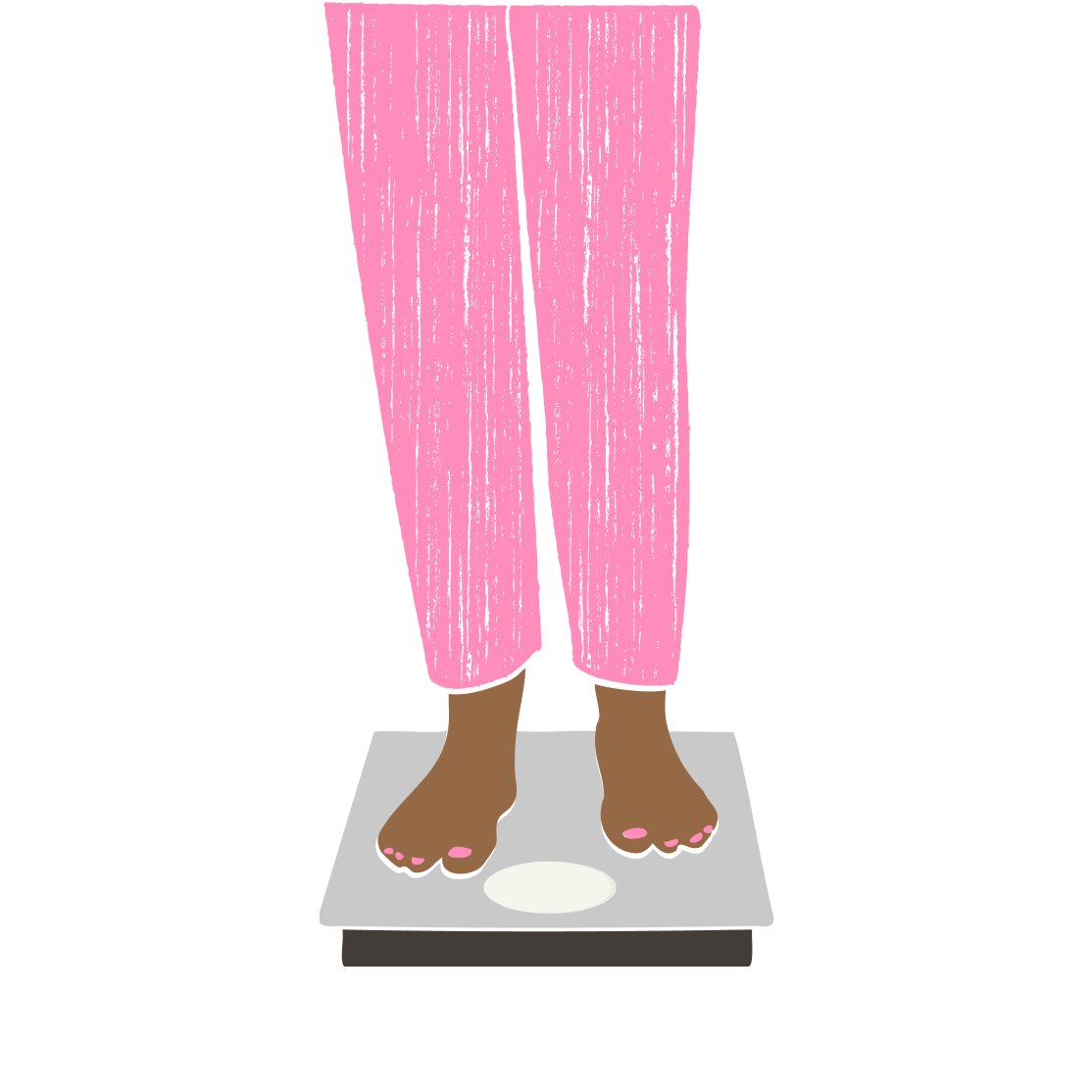Oral semaglutide for weight loss—including new pills and sublingual semaglutide formulations—has emerged as a groundbreaking treatment for those looking for a convenient alternative to injections. Working with a healthcare professional, like a Midi clinician, can help you decide if a personalized GLP-1 prescription is right for you and which type (shots, pills, drops) may be best for your goals, preferences, and health history.
When GLP-1 medications first hit the market, they were only offered as injectables. For the needle averse among us, that may have been a complete non-starter. Now, you’ve got options. While early oral versions were less effective, largely due to poor absorption from the gut, we now have new oral formulations, including the recently FDA-approved Wegovy pill, with improved absorption and adjusted dosing so you can see greater results without needing injections.
Understanding Oral Semaglutide
Before we dive into the specifics of oral semaglutide, let’s first explain what semaglutide is.
What Is Semaglutide?
Semaglutide belongs to a class of medications known as glucagon-like peptide-1 (GLP-1) receptor agonists.
Our small intestines naturally produce the GLP-1 hormone, which does exactly what the synthetic medication does:
- Slows digestion
- Reduces hunger
- Increases feelings of fullness
- Enhances insulin sensitivity
- Manages blood sugar levels
- Decreases food chatter and food noise
The problem is that, for many of us, our GLP-1 hormone no longer functions optimally. This is generally the case among people with Type 2 diabetes when the body stops using insulin effectively and, as a result, sugar builds up in the blood.
That’s why GLP-1s were originally developed specifically for managing Type 2 diabetes. But more and more research has shown that GLP-1s have other benefits, particularly when it comes to weight management, whether you have Type 2 diabetes or not.
Beyond weight loss, GLP-1s can have other long-term health benefits, including:
- Improving cholesterol levels
- Improving fatty liver disease
- Reducing your risk of heart disease and kidney disease
- Reducing alcohol intake and smoking
What Is Oral Semaglutide and How Does It Work?
Oral semaglutide is made up of the same active ingredient as injectable GLP-1s, working to slow digestion, reduce appetite, regulate insulin sensitivity, and support weight loss. When given orally, semaglutide is dosed differently as absorption and delivery are different from injectable semaglutide (more on that below).
There’s also oral tirzepatide weight loss drops that function in much the same way. For this article, we’re going to focus on oral semaglutide.
There are a few ways you can take oral semaglutide. The two most common ways:
- Semaglutide tablets for weight loss that you swallow (Rybelsus is the only currently available semaglutide tablet; it’s not available in generic form). A new 25 mg pill version of Wegovy was FDA-approved in December 2025 and is scheduled to be available in early 2026.
- Drops that are placed under the tongue (also referred to as sublingual semaglutide)
How to Take Oral Semaglutide or Tirzepatide Drops
Oral semaglutide drops need to be taken once daily on an empty stomach, ideally early in the day for best efficacy. If that’s not possible, wait at least 30 minutes after eating. Here's how to use GLP-1 oral liquid:
- Roll the bottle between your hands or shake lightly before each use.
- Measure the prescribed amount in the oral syringe.
- Place the liquid under your tongue (the solution has a peppermint flavor to make it more pleasant).
- While keeping your mouth closed and relaxed, hold it there for at least 1–2 minutes (longer is better for absorption).
- Then swish it around your mouth before swallowing.
- Avoid eating, drinking, or brushing your teeth for about 30 minutes after. This gives the medication time to absorb fully.
Does Oral Semaglutide Work: Injectables vs. Oral Tablets vs. Oral GLP-1 Drops?
The main question everyone wants to know: Does oral semaglutide or sublingual semaglutide work for weight loss? And is it as effective as the injectables?
The main differences between oral and injectable forms of semaglutide hinges on how their delivery methods affect the body's absorption of the drug, impacting efficacy and results.
The research, so far, suggests that all forms of semaglutide can aid in weight loss, but by how much can vary greatly.
Injectables
In a seminal March 2021 New England Journal of Medicine study, adults receiving a weekly 2.4 mg injection of semaglutide for about 15 months lost 15% of their body weight—35 pounds, on average. More than a third of subjects in the semaglutide arm of the study lost more than 20% of their weight; many subjects with type 2 diabetes saw improvements in their blood sugar regulation, too. Subsequent studies have yielded similar success rates.
But the availability of GLP-1 injectables is rapidly changing, too. The latest on the scene: retatrutide, a so-called "triple-agonist" that targets GLP-1, GIP, and glucagon receptors. Recent findings show that participants on the highest dose of retatrutide lost an average of 28.7% of their body weight over 68 weeks. It's expected to be FDA approved in 2026.
Oral Tablets
One study found that the average weight loss with currently available oral semaglutide tablets (Rybelsus) was roughly 9 pounds after 26 weeks. That said, oral GLP-1 medications for weight loss are advancing quickly, and the research has become much more compelling this year with newer options scheduled to come on the market soon.
- Recent clinical trials, published in September 2025 in The New England Journal of Medicine, show that high-dose oral semaglutide tablets (being touted as "Wegovy in a pill") can deliver weight loss results that begin to approach what we see with injections. A higher-dose semaglutide tablet (25 mg) led to an average weight loss of about 14–17% over a little more than a year, along with additional benefits like lower blood pressure and reduced inflammation. When it reaches the market in early 2026, pricing is expected to start at $149 for the lowest dose.
- A non-peptide GLP-1 pill called orforglipron is also showing promising results. In late-stage trials, people taking orforglipron lost an average of about 12% of their body weight over roughly 72 weeks, and head-to-head studies suggest it may outperform standard oral semaglutide tablets (Rybelsus) in both weight loss and blood sugar control. Orforglipron is not yet FDA-approved.
Oral GLP-1 Drops
Research on the efficacy of oral weight loss drops is still emerging, but one recent animal study suggests it may be more effective than currently available tablets, but this is highly dependent on how much time the drug has to be absorbed under the tongue before it's swallowed.
“We currently have no large scale outcomes data on sublingual GLP-1s,” says Ava Mainieri, PhD, Director of Clinical Outcomes and Programming at Midi Health. “What we do have is preclinical and pharmacokinetic data that inform us of its similarity with FDA-approved GLP-1s. We know that in animal models it works the same. And when we talk about pharmacokinetics, the big question was if the sublingual drops were being absorbed into the body. We have pharmacokinetic data that says, yes, it is being absorbed.”
In most instances, you will still see results but they may be slower and less dramatic. You may also experience fewer side effects, which may make it a better, long-term solution for those who prefer to avoid injections.
Switching from Injected GLP-1s to Oral Drops
So let’s say you don’t have any problems with injecting yourself, but maybe you’ve simply grown tired of weekly injections or have reached your desired weight loss. In those cases, oral semaglutide drops may be a good alternative for long-term weight management. You can take it in a standard dose or via microdosing, which means taking an amount that’s less than what the manufacturer recommends for weight loss though you’re still likely to see results.
“There’s some evidence that sublingual semaglutide may be efficacious for the maintenance of the weight loss that you have accrued using an injectable semaglutide or tirzepatide,” says Dr. Mainieri.
Who Should Take Oral Semaglutide Drops?
Dr. Mainieri notes that oral semaglutide drops are not recommended for patients looking to control diabetes or lose large amounts of weight. If you fall into either or both camps, the injectables are going to provide the most health benefits and glucose control.
“Sublingual semaglutide is for individuals who want to lose a smaller amount of weight, or for those who want to explore the other benefits of GLP-1s beyond diabetes control and major weight loss,” says Dr. Mainieri.
Oral Drops vs. Injectable Semaglutide: Key Differences
Oral semaglutide is best given sublingually (absorbed in the mouth) and is taken daily, while injectable is taken once weekly and slowly absorbed all week. Here, we’ll break down how the different delivery methods change things.

Absorption & Bioavailability
What Is Bioavailability?
One word you’ll hear thrown around when comparing different forms of semaglutide is “bioavailability.” This refers to the proportion of the drug that successfully enters the bloodstream and becomes active in the body after it’s administered. Bioavailability is a critical measure in pharmacology, indicating how much of a given dose of a drug is available to produce a therapeutic effect.
High bioavailability ensures that patients are getting the maximum benefit from each dose, which is crucial for medications designed to manage chronic health conditions.
The different forms of semaglutide have different percentages of bioavailability:
- Injectables: High bioavailability, hovering around 89%.
- Oral Tablets: Because GLP-1 pills have to be metabolized in the stomach, their bioavailability goes way down during digestion and exposure to stomach acids. After they're fully absorbed, you’re looking at a bioavailability range of only 0.4% to 1%. This is why newer GLP-1 pills are packed with much higher doses of semaglutide—to help make up for what's lost during digestion.
- Oral Drops: Because the drug is absorbed through the tissues under your tongue, it bypasses much of the digestive system. This is believed to improve how much of the drug actually makes it into your bloodstream with bioavailability potentially as high as 40%.
Convenience
For individuals averse to injections, oral semaglutide can be a more convenient and less invasive option. However, it requires strict adherence to dosing instructions to increase absorption and efficacy.
By contrast, injectable semaglutide is administered weekly as a quick shot in the belly, which some may find more manageable. That said, it has to be refrigerated which can make it harder to travel with. With weight loss pills or drops, you can take them on the go and never worry about missing a dose.
Effectiveness
Animal studies show variable weight loss results when it comes to oral GLP-1 drops, though individual responses will vary especially when it comes to how long you’re able to hold the drops under your tongue.
Injectable semaglutide, on the other hand, has been shown to offer more consistent absorption and long-term efficacy.
How Oral Semaglutide Drops Can Help During Perimenopause & Menopause
When estrogen fluctuates and declines during perimenopause as you inch towards the end of your reproductive years, the effects are felt throughout the entire body. You have estrogen receptors everywhere, from your brain to your gut to your ovaries.
Estrogen plays an important role in weight control, helping to curb appetite. So when levels start dropping during perimenopause, you may feel hungrier, making it harder to maintain your weight or drop pounds easily. On top of that, other menopause symptoms, including poor sleep and mood changes, can leave you craving sugary, comfort foods.
It’s no wonder, then, that 87% of Midi patients complain of struggling with weight and body changes. The combination of dropping estrogen, the decline in physical activity that tends to happen as you age, and side effects of menopause like trouble sleeping all combine for a slow-and-steady weight gain. To make matters worse, due to the change in hormone levels, your basal metabolism may burn 250–300 fewer calories per day than before.
That’s why semaglutide during menopause can help. It can quiet food cravings and how much time you spend thinking about food.
Personalized GLP-1 prescriptions work best when paired with a healthy diet and regular exercise. To help you reach your goals, a Midi clinician will support you with advice on the lifestyle changes that are best for you.
True Stories Of Transformation
Semaglutide for Anti-Aging: Can It Support Longevity?
The more we learn about GLP-1s, the more we realize that they can do far more than just help us shed pounds. And research shows they can have a profound impact on our long-term health, counteracting the effects of depleted estrogen, in a number of ways.
- Fewer heart issues: By improving glucose metabolism, reducing inflammation, and aiding in the maintenance of lean body mass, semaglutide could potentially lower the risk of age-related diseases such as cardiovascular conditions, like heart disease, high blood pressure, and stroke.
- Lower risk of memory loss and dementia: Emerging research suggests that GLP-1 receptor agonists like semaglutide may have neuroprotective effects, potentially reducing the risk of neurodegenerative diseases such as Alzheimer's. While findings are preliminary, they highlight an exciting avenue for future studies.
- Longer, healthier life: Early studies indicate that semaglutide may contribute to longevity by mitigating factors like oxidative stress and chronic inflammation, both of which are linked to aging. More extensive research is needed to confirm these potential lifespan-extending benefits.
“When it comes to longevity, what we know so far is based on injectables,” points out Dr. Mainieri. “So we’re inferring that some level of the same benefit could be applied to sublingual semaglutide.”
Potential Side Effects and Risks of Oral Semaglutide
All forms of GLP-1s carry the risk of some side effects. The most frequently reported side effects are gastrointestinal, including:
- Nausea
- Diarrhea
- Constipation
At Midi, when we prescribe personalized GLP-1 medications we also supply patients with Ondansetron tablets, a medication that’s used to treat nausea and vomiting and can be used if significant symptoms occur. Many patients also find relief from mild nausea by sipping ginger tea or taking ginger capsules.
Serious Risks to Watch For
- Pancreatitis (severe abdominal pain)
- Thyroid tumors
- Hypoglycemia
- Gallstones or acute cholecystitis
If you think you’re experiencing any of these issues, speak with a healthcare provider immediately.
Combining Oral Semaglutide with Other Weight Loss Strategies
To get the max benefits out of weight-loss meds, you have to put in the work to reshape your diet and exercise routines to support your goals.
- Dietary Changes: Focus on high-protein, fiber-rich foods to enhance satiety. Limit ultra-processed and high-sugar meals to optimize results.
- Exercise for Enhanced Results: Strength training and cardiovascular exercise improve fat loss and preserve muscle mass.
- Lifestyle Adjustments: Prioritize sleep, hydration, and stress management to maximize medication efficacy.
Getting Started with Midi’s Personalized GLP-1 Drops
Book a virtual visit with a Midi clinician to see if you’re a candidate for our personalized GLP-1 prescriptions, which are carefully dosed to match your weight-loss goals. Your clinician will typically start with the lowest effective dose to minimize side effects like nausea.
Key Takeaways
- Oral semaglutide can be an effective option for anyone who wants to take a GLP-1 (semaglutide) but is averse to injecting themselves. The latest formulations (Wegovy pill and orforglipron) have shown comparable results to injectables in recent clinical trials.
- While weight loss may be less dramatic with oral semaglutide drops than injectables, it may be more sustainable with fewer side effects.
- Following dosage instructions for oral semaglutide drops is important to increase efficacy (holding it under the tongue for 1-2 minutes at least).
- Like other forms of semaglutide, the benefits can extend beyond just weight loss, helping to stave off chronic conditions that are more common as you age.
Frequently Asked Questions (FAQs)
How effective is oral semaglutide for weight loss?
If you want to lose weight without injections, oral semaglutide delivered via under-the-tongue drops (sublingual) offers an easy alternative. Recent animal studies suggest that oral semaglutide drops may be more effective for weight loss than currently available oral semaglutide tablets. That said, the newest formulations of weight loss pills (the FDA-approved Wegovy pill and orforglipron) show strong results in clinical trials that rival injectables in terms of weight loss.
Do sublingual semaglutide drops work?
Sublingual semaglutide drops can deliver semaglutide into the bloodstream, but it has yet to be studied in large human weight-loss trials. Early preclinical (animal) studies suggest that semaglutide can be absorbed through the tissue under the tongue and may reach measurable levels in the bloodstream. These studies focus on absorption and bioavailability—not long-term weight-loss outcomes. So while it may lead to modest weight loss and help curb appetite, the results can’t be directly compared to FDA-approved formulations yet.
Is oral semaglutide as effective as injected?
Injected semaglutide is well-studied and known for its strong effectiveness. Sublingual semaglutide is a newer option that can be helpful for people who prefer to avoid injections, and early studies suggest it can deliver semaglutide into the bloodstream successfully. However, because it’s still relatively new, its long-term effectiveness isn’t as extensively established compared to the injectable form. Newer oral pills that have yet to hit the market are showing strong effectiveness.
Can I lose 20 pounds in a month with semaglutide?
It’s highly unlikely and also not recommended to try to lose 20 pounds in a month with semaglutide. While you may see lots of dramatic weight loss stories on social media, studies have shown that among adults who were overweight or obese, those who injected semaglutide lost nearly 15% of their body weight after 68 weeks. (For someone who weighs 200 pounds, that’s a weight loss of 30 pounds in over a year’s time.)
How quickly does oral semaglutide start working?
Everyone is different, so dosing can be adjusted until you get the desired results. Some patients may notice results within a few weeks, while it may take longer for others. Keep in mind that consistent use, along with a healthy diet and exercise, leads to the best outcomes.
Can you take semaglutide orally for weight loss?
Yes! You can take semaglutide orally as either a tablet you swallow or as drops under the tongue (sublingual). Both can lead to weight loss and improved glucose control.
What if I miss a dose of oral semaglutide?
If you remember later on the same day, take the missed dose then. If you don’t remember until the next day, skip it and stick to your usual schedule. Never take two doses at once, as doing so can increase the risk of side effects.
If you’re in perimenopause or menopause and want guidance from clinicians who specialize in women’s midlife health, book a virtual visit with Midi today.
Hormonal change is at the root of dozens of symptoms women experience in the years before and after their period stops.
Our trained menopause specialists can help you connect the dots to guide you towards safe, effective solutions.
Whether you need personalized guidance or a prescription routine to tackle symptoms—including brain fog, hot flashes, sleep trouble, mood swings, and weight gain—we’ve got you covered. Learn more here.
Midi’s mission is to revolutionize healthcare for women at midlife, wherever they live and whatever their health story. We believe that starts with education, to help all of us understand our always-changing bodies and health needs. Our core values guide everything we do, including standards that ensure the quality and trustworthiness of our content and editorial processes. We’re committed to providing information that is up-to-date, accurate, and relies on evidence-based research and peer-reviewed journals. For more details on our editorial process, see here.









